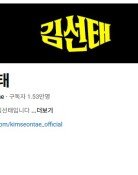Diplomatic row put Korea-Japan currency swap to an end
Diplomatic row put Korea-Japan currency swap to an end
Posted February. 18, 2015 06:48,
Korea and Japan have decided not to extend the Korea-Japan currency swap arrangement worth 10 billion U.S. dollars, which is about to expire on Feb. 23.
Currency swap is an agreement that allows one nation to deposit its own currency to the counterparty nation and receive the counterpartys currency or dollar in a financial emergency occasion such as foreign currency crisis. Korea-Japan currency swap started with two billion dollars in July 2001, and expanded to 70 billion dollars in October 2012. However, the swap line had been shrinking amidst growing tensions between the two nations sparked by Japans denial on the wartime atrocities and its territorial claims over Koreas easternmost Dokdo islets, and finally came to an end after 13 years and 7 months.
In the re-negotiation process to extend the currency swap arrangement, Japan took a high-handed attitude and said, If Korea makes a request for the swap line extension first, we will review it. Korea also remained apart on the issue, saying, It is a matter for both nations to agree and mutually determine. Regardless of whose responsibility was bigger, it is not beneficial for both nations that a diplomatic row has negatively affected economic collaboration.
In the midst of Asian monetary crisis that started from Thailand in 1997, Japan withdrew 10 billion dollars of capital from Korea out of blue, which played a big part in Koreas sliding into a financial crisis. Right after the global financial crisis in 2008, Japan also showed passive attitude in terms of expanding the monetary cooperation with Korea. When Korea and China pursued signing a currency swap amounting to 30 billion dollars in December 2008, Japan changed its attitude to become actives in negotiations for making a swap line with Korea of the same scale. It leaves bitter taste when looking at Japans stance to tame Korea by utilizing its capital power, but it is a cold reality in the international economic relations.
Even without the Korea-Japan currency swap, it does not make a big impact to our economy. Korea has 362.1 billion dollars in foreign reserve, which amounts to three times of the short term debts. The Asias fourth largest economy also has currency swap arrangement at about 80 billion dollars with five nations including China. Given that Korean economy is vulnerable to external variables, however, Korea needs to build up a stronger safety net against economic challenges from the outside to maintain the safety of domestic economy. The governments economic team and the Bank of Korea must wear belt and braces for foreign currency liquidity management to avoid a monetary crisis in which Korea has to borrow capital from Japan.







